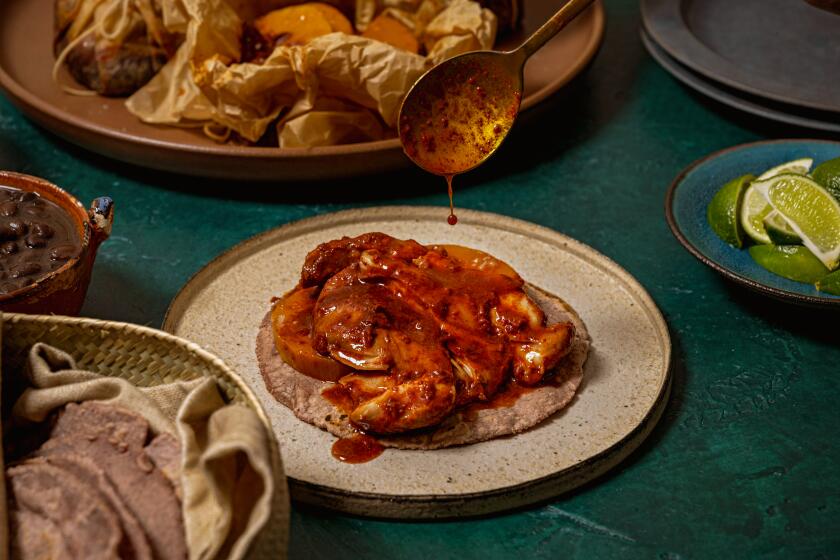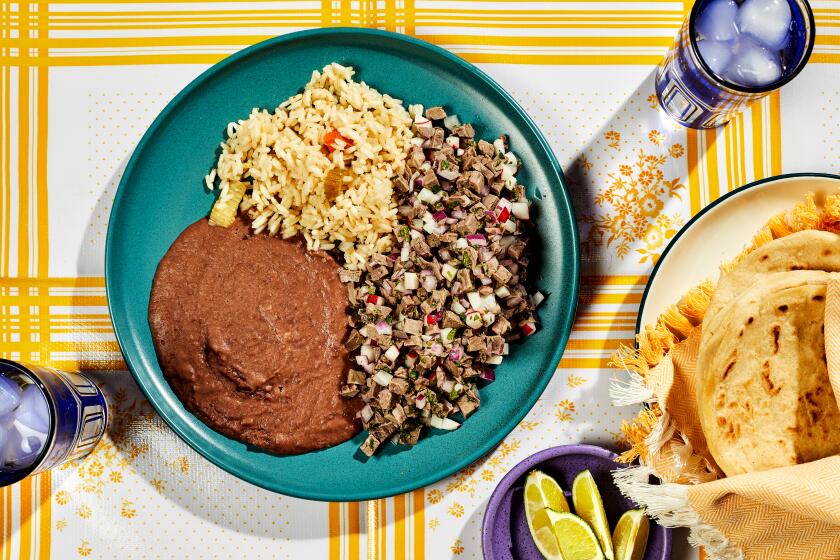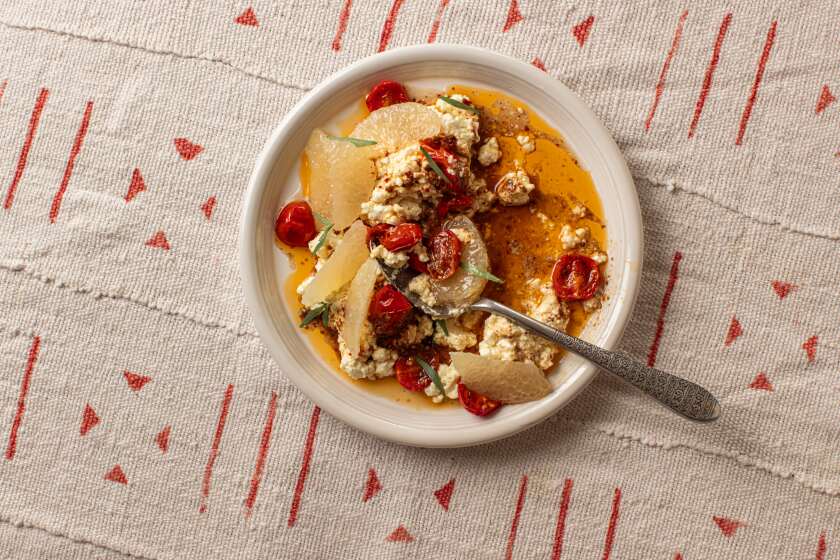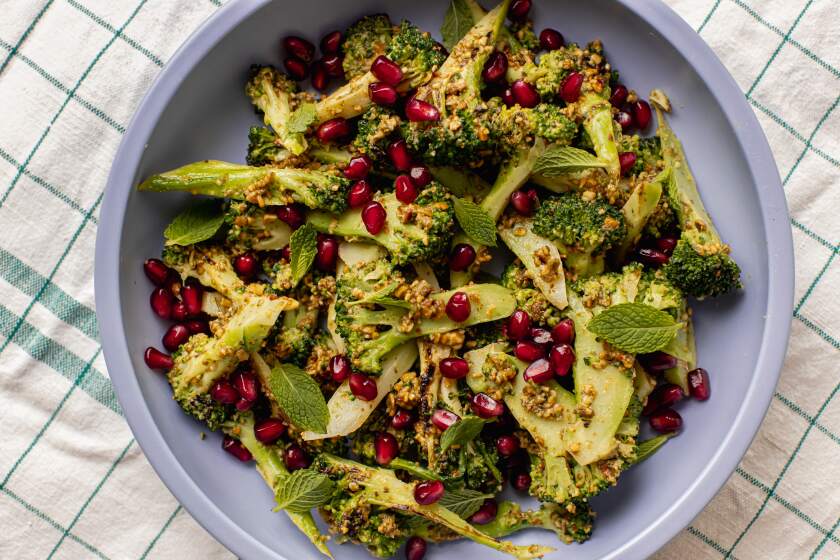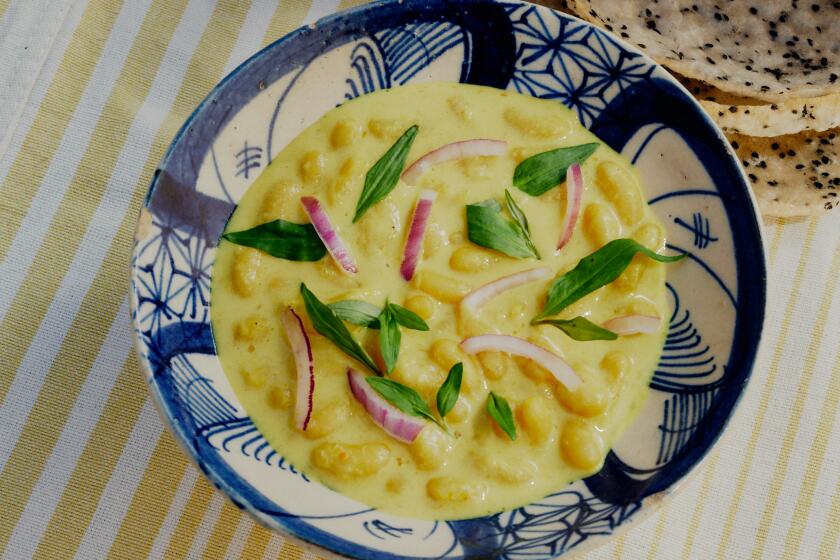Red pork chili tamales
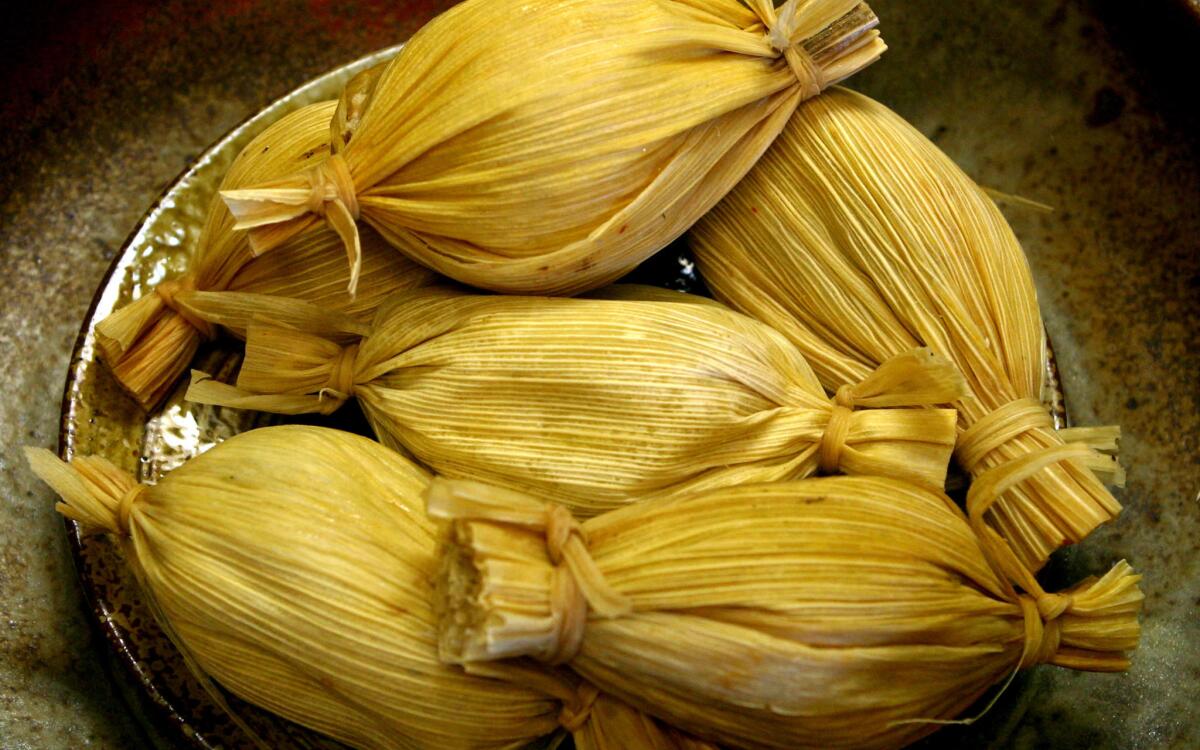
- Share via
These moist packets of creamy masa are alive with flavor -- and plenty of saucy filling. One ice cream scoop of masa is enough for a large husk. It should be a little less than one-fourth inch thick, just enough to make sure it’ll seal in all the filling. The best way to spread it is with a rubber or offset spatula. The same ice cream scoop measures out just the right amount of filling.
From the story: Tamales at home for the holidays
Place the pork, onion and garlic in a large pot and cover with water. Bring to a boil, then reduce the heat to medium and simmer, covered, for 2 hours, checking after 1 hour and adding water if necessary to cover the meat.
After 2 hours, add the salt and simmer for 30 minutes to 1 hour more, until tender.
Carefully remove the meat from the pot and place on a large platter to cool. Skim the fat from the stock and discard. Reserve the stock for use in the sauce and the masa. Cut the pork butt into 1-inch cubes.
Meanwhile, prepare the chili sauce and then prepare the masa.
Combine the cubed pork and the chili sauce in a large bowl.
To assemble the tamales, spread one-third to one-half cup masa on the smooth side of a corn husk. Spread the filling onto the top third of the husk, leaving one-half inch of the husk free of filling; the filling should be one-fourth inch thick. Spoon about one-fourth cup pork and sauce onto the center of the tamale. Place one olive at the end of the large end of the husk so that it will sit on top of the finished tamale.
Fold the long sides of the tamale over the center, forming a bundle, then fold up the bottom to make a packet that is open on top. Repeat with the remaining tamales.
To steam the tamales, fill a large pot that has a steamer basket insert with 4 to 6 inches of water. Leaving out the insert, heat the water to a boil. In the meantime, loosely fill the steamer basket with the tamales, placing them along the sides of the basket with the tamale opening faceup. (Steam needs to be able to come up between the tamales for them to cook evenly. Cook the tamales in batches if necessary.) Steam the tamales for 1 hour. Pull one tamale out and unroll. If the masa rolls cleanly off the husk and is set, they are done. Cook an additional few minutes if necessary.
Red pork chili sauce
Seed the chiles, rinse and set aside. Bring 4 cups of water to a boil. Remove from heat and add the chiles, pushing them down with a spoon so they are fully submerged. Cover and let stand for 30 minutes.
Meanwhile, in a saucepan over medium heat, boil the onions in water until soft, about 25 minutes. Drain.
Remove the soaked chiles from the water, reserving 2 cups of the liquid. In a food processor, blend the chiles, onions and garlic until pureed.
In a saucepan over medium heat, heat the oil. Stir the cumin into the hot oil, being careful not to burn it. Add the chile mixture and simmer for 3 minutes. Add 1 cup of the stock, 1 cup of the reserved chile liquid and the tomatoes. Add just enough additional stock and reserved liquid to make a sauce the consistency of thin gravy. Add the sugar and salt and cook for 10 minutes longer, stirring occasionally, until the sauce is the consistency of a thin gravy. Taste and add more salt and sugar if needed.
Set aside to cool. Store in an airtight container in the refrigerator for 4 to 5 days, or in the freezer for 2 to 3 months.
Basic fresh masa
In the bowl of a heavy-duty mixer, combine the butter and margarine. With the paddle attachment on high speed, whip for 2 minutes, or until fluffy. Lower the speed to medium and add the fresh masa alternately with 1 cup of the stock, then add the salt. Beat until well mixed.
Return the mixer to high speed and whip for 3 to 5 minutes, until the masa is the consistency of spackle. If necessary, add more stock, one-fourth cup at a time, until the correct consistency is attained.
Drop one-half teaspoon masa into a cup of cold water. If the masa floats, it is ready; if it sinks, continue whipping it for another minute. Repeat this “float test” until the sample masa floats.
Get our Cooking newsletter.
Your roundup of inspiring recipes and kitchen tricks.
You may occasionally receive promotional content from the Los Angeles Times.










